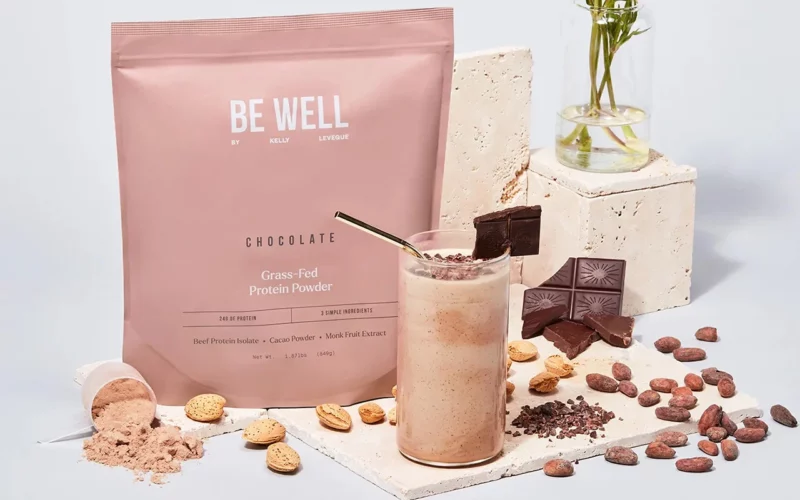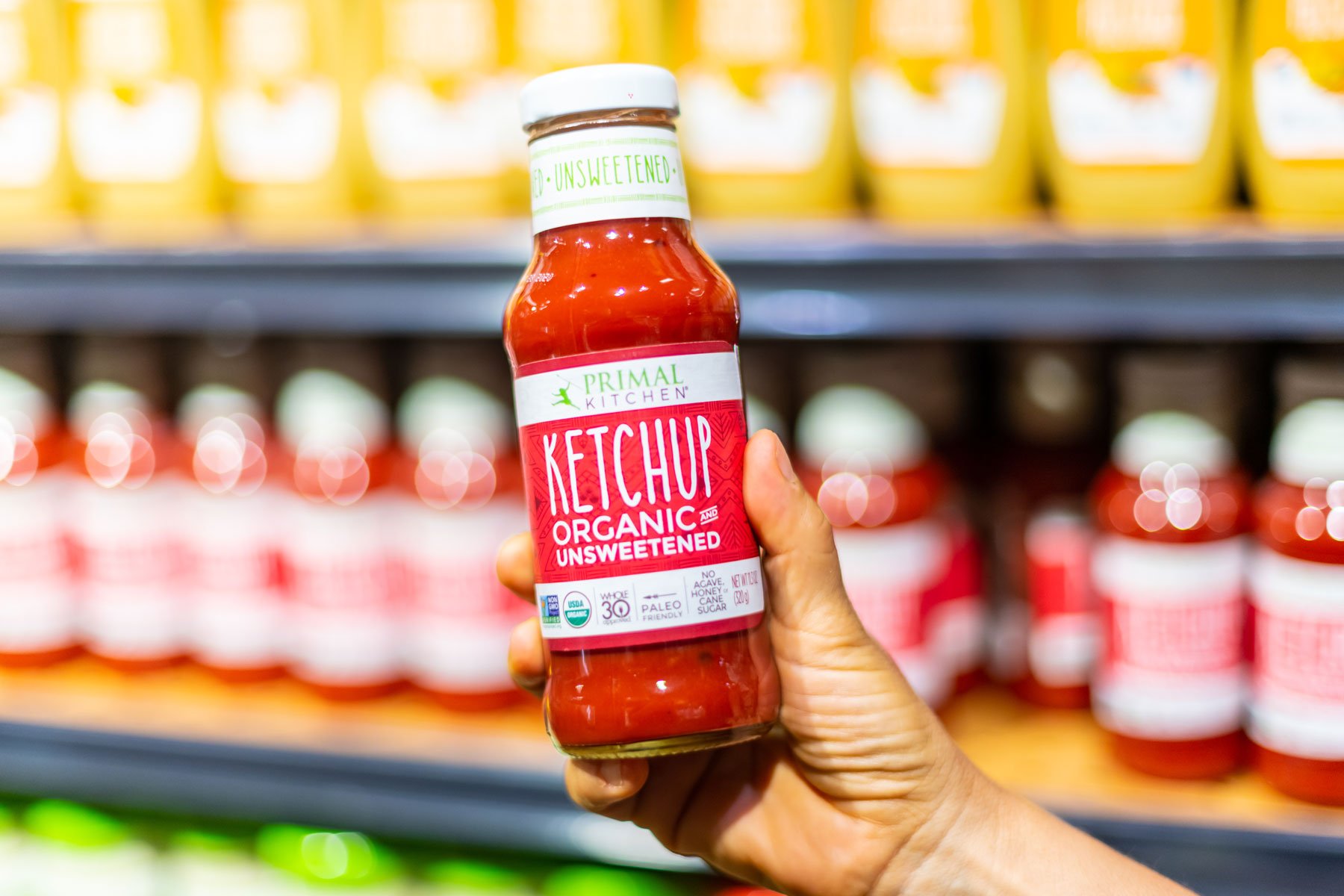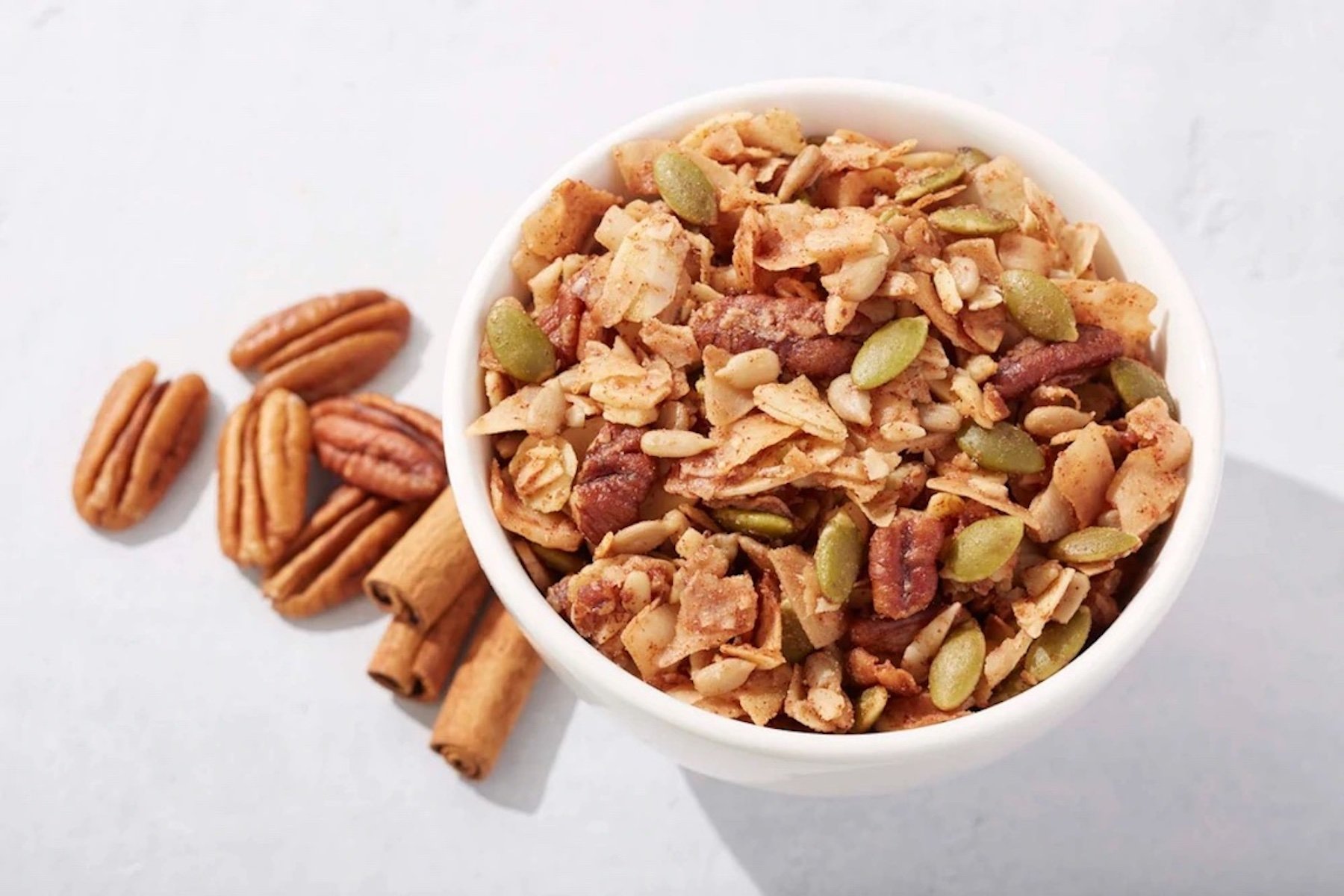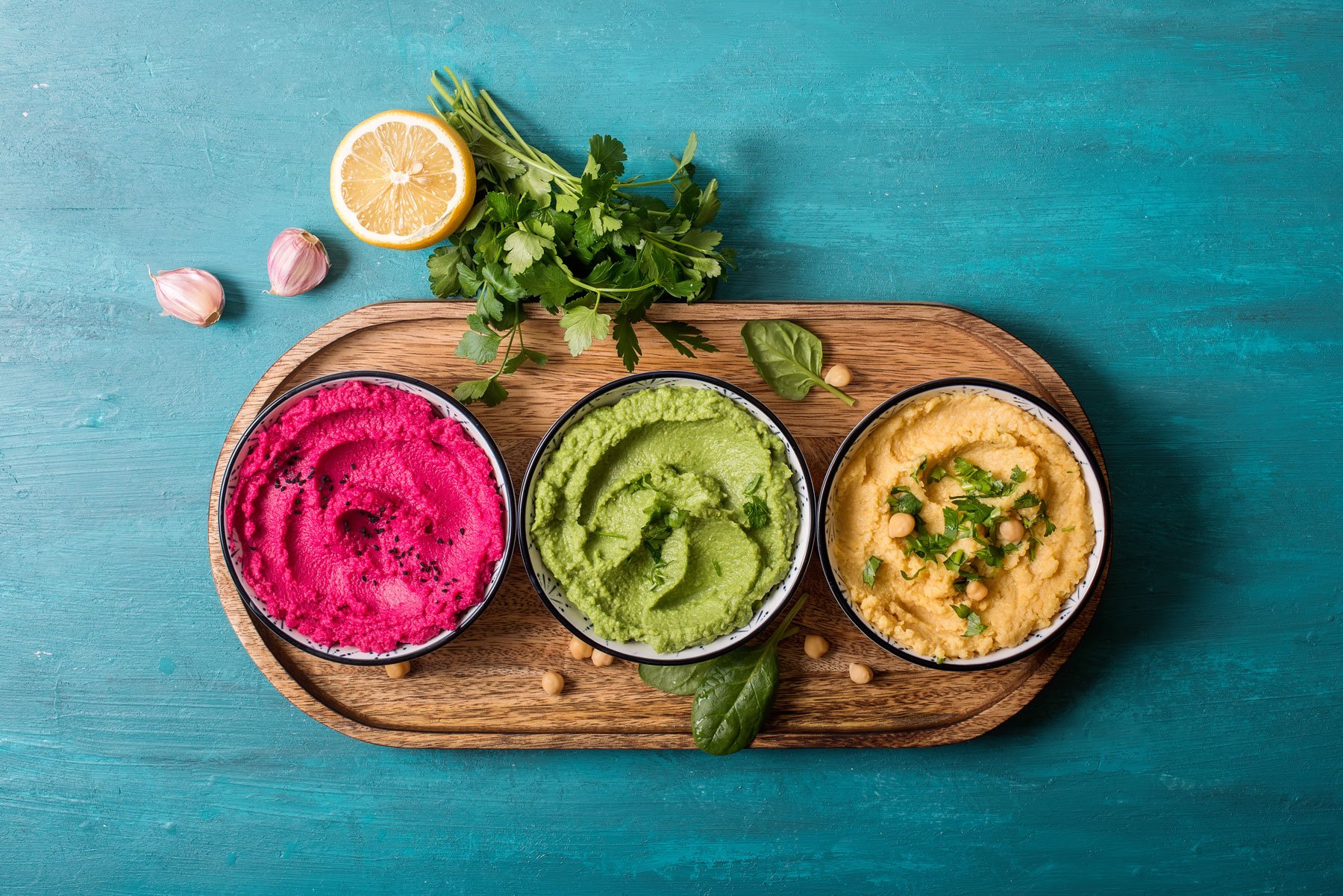Consuming enough protein is essential. This workhorse nutrient is crucial for building new cells, repairing old ones, muscle recovery, and adding lean muscle mass, so it’s essential for everyone to consume sufficient protein.
But there are other reasons to make sure you’re getting enough. Protein helps control blood sugar levels because it prompts the release of the hormone cholecystokinin, which slows digestion and curbs the release of glucose into the bloodstream.
Protein needs vary considerably based on several factors, including age, sex, activity level, and fitness goals. It’s also important not to consume too much protein, as your body will convert the excess amino acids into glucose through a process called gluconeogenesis. That glucose, if not used, could be stored as fat.
So what’s the optimal amount of protein to consume? The National Institutes of Health recommends 0.8 grams of protein per kilogram (2.2 pounds) of body weight per day, but that might not be enough. For a 150-pound person, that’s a daily protein intake of 54 grams, or about the amount you’d get in a serving of a 5.3-ounce cup of 2% Greek yogurt, 4 ounces of chicken breast, and 1 ounce of almonds. Research shows older adults and people who lift weights at least twice a week can benefit from eating 1.5 to 2 times as much as the RDA, or about 81 to 108 grams a day for a 150-pound person, to help with muscle growth and decreasing body fat—especially if you strength train regularly.
Although it’s possible to reach these higher recommendations through dietary sources alone, it can be challenging for vegetarians and vegans because meat, poultry, fish, and dairy are some of the best food sources of this macronutrient. Unlike many plant proteins, animal proteins are also complete proteins, meaning they contain the nine essential amino acids the body cannot produce itself. For instance:
- 4 oz steak contains 33 g protein
- 4 oz salmon contains 23 g protein
- A 5.3 oz cup of 2% Greek yogurt contains 15 g protein
- 2 eggs contain 12 g protein
- ½ cup lentils contains 9 g protein
- ¼ block (122 g) of tofu contains 15 g protein
- 1 cup of chickpeas contains 14 g protein
- ¼ cup of pumpkin seeds contains 11 g protein
If you don’t eat animal products or are busy and lack nutritious food options, high-quality protein powder supplements are a convenient way to add as much as 20 to 30 grams of protein to a meal, snack, or post-workout recovery shake.
Clean Protein Powder Shopping Advice
A wide variety of protein supplements are available online (even on Amazon), in specialty stores, and in most chain grocery stores. Here’s what to consider when buying.
1. Ingredients
Ideally, the protein source (i.e., soy protein isolate) is the only thing on the ingredient list, and perhaps natural flavors like cocoa or vanilla bean. Steer clear of added sugars, which can spike glucose levels, or artificial sweeteners like sucralose, which may negatively impact metabolism and harm the microbiome. Avoid additives such as fillers, artificial flavors, carrageenan, and other emulsifiers (though this means it’s more likely to clump), which may create inflammation and have been linked to certain cancers in animal studies. Also steer clear of seed and vegetable oils such as sunflower, corn, and soybean oil (often added to produce a silkier texture), which may promote inflammation when consumed in excess. Thickening agents—gums, psyllium husk, inulin, and others—may contribute to bloating or upset sensitive stomachs.
2. Concentrate vs. isolate vs. hydrolysate
Some protein powders, like whey, casein, and soy, are available as concentrates, isolates, or hydrolysates. These variations are derived from different filtration processes and range in degree of purity and digestibility, with concentrates containing as little as 35% protein; isolates are about 85-90% protein, and hydrolysates almost 100% protein. Products with higher protein concentrations are easier to digest and have less carbohydrates and fat but cost more per ounce.
3. Third-party certifications and verification
Some research has found protein powders can contain high levels of heavy metals, such as lead, cadmium, and arsenic, which can be toxic. To stay safe, look for the “NSF Certified for Sport seal, a very well-respected stamp of approval in the sports nutrition world. It indicates that a product contains what the label says it does, has been tested for contaminants and banned substances (as specified by major athletic associations), and is made at a facility audited annually or bi-annually for quality and safety. USP and Informed Choice are other seals with similar standards.
4. Serving size
Keep an eye on serving size. These can range from 1 small scoop to a third of a cup or more, making some powders more expensive.
The Best Protein Powder Options for Metabolic Health
All of these powders will help boost protein intake and deliver similar benefits. The best one for you comes down to individual preferences for taste, texture, and food source. All of these received high marks from our panel of testers.
Whey Protein Powder
Whey is the liquid derived from enzymes or acids added to milk to make cheese. It’s one of the most popular types of protein powder because it’s easily digested, not strongly flavored, and relatively inexpensive. It’s available as whey protein concentrate (a mix of protein, carbohydrates, and fat), isolate (a much higher percentage of protein), or hydrolysate (almost all protein).
Our pick:
 Klean Athlete Whey Protein Isolate
Klean Athlete Whey Protein Isolate
With 20 grams of protein in a single scoop, this powder was one of the best whey protein powders tried by our panel. It mixes easily into water or plant-based milk for straightforward sipping, and also delivers branched-chain amino acids (BCAAs), which are important for building muscle. If you like something sweet, try the strawberry flavor, one of the brand’s best-tasting options. Per serving (1 scoop; 22.3 g): 85 calories, 1 g carbs, <1 g sugars, 20 g protein, 30 mg sodium Price: $57.40 for 15.73-ounce container
Casein
Casein are the curds that remain when you separate the liquid whey when making cheese. Since it takes longer to digest, using casein-based powders as a nightcap before bed may help promote overnight muscle synthesis. Look for micellar casein, which is a purer form of the powder.
Our picks:
With just one ingredient (micellar casein), this tastes better when mixed with frozen berries and unsweetened almond milk in a protein shake. But this protein blends easily with just water and ice, too.
Per serving (2 scoops; 30 g): 110 calories, 0 g fat (0 g sat), 0 g carbs, 0 g fiber, 0 g sugars, 26 g protein, 20 mg sodium Price: $100 for 5-pound container
 Transparent Labs 100% Grass-Fed Casein Protein
Transparent Labs 100% Grass-Fed Casein Protein
If you don’t mind the taste of stevia, this powder can hit the spot if you have a sweet tooth; the chocolate version mirrors a frothy milkshake in taste and texture.
Per serving (1 scoop; 35 g): 120 calories, 0.5 g fat, (0 g sat fat), 4 g carbs, 1 g fiber, 3 g sugars, 25 g protein, 300 mg sodiumPrice: $60 for 2.32-pound container
Beef
A beef-based protein powder is a good option for those looking for alternatives to dairy and soy. Since you’re dealing with a concentrated product, look for versions sourced from grass-fed cows, which are less likely to contain hormones and antibiotics.
Our pick:
 Be Well Chocolate Grass-Fed Beef Protein Powder
Be Well Chocolate Grass-Fed Beef Protein Powder
With just three simple ingredients (beef protein isolate, cacao powder, and monk fruit extract), this powder has a sweet chocolate taste with no noticeable aftertaste. Plus, it contains naturally occurring collagen. Try it in a nutritionist-approved peppermint mocha or an almond-milk chocolate shake.
Per serving (1 scoop; 28 g): 120 calories, 1 g fat (0.5 g sat), 2 g carbs, 1 g fiber, 0 g sugars, 24 g protein, 150 mg sodiumPrice: $60 for 1.87-pound container
Soy
Soy is a complete plant protein, so it’s one of the best vegan protein powder options, and is ideal for vegans and others avoiding dairy or eggs. It’s also generally less expensive per ounce than plant-based sources like pea protein or hemp and is high in fiber, iron, calcium, and omega-3 fatty acids.
Our picks:
This soy protein isolate from Whole Foods has a natural vanilla flavor and a budget price. It blends easily and mixes well in a chia seed, flax, and hemp pudding or healthy snack bar recipe.
Per serving (1 scoop; 27.7g): 110 calories, 1 g fat, <1 g carbs, 0 g fiber, 0 g sugars, 24 g protein, 280 mg sodium Price: $20 for 15.6-ounce container
Dress up the somewhat plain unflavored version of this plant-based protein powder with frozen berries and unsweetened plant-based milk for a post-workout smoothie, or use it in your favorite grain-free overnight oats recipe.
Per serving (⅓ cup; 24 g): 90 calories, 0.5 g fat (0 g sat), 0 g carbs, 0 g fiber, 0 g sugars, 20 g protein, 170 mg sodium Price: $26 for 1.2-pound container
Hemp
Hemp is a complete plant protein that’s also high in fiber and omega-3 fatty acids, plus it’s a good source of antioxidants and minerals like magnesium and iron.
Our pick:
While its army-green hue can be a bit off-putting, this organic protein powder mixes up with a relatively smooth consistency and no dominant, hemp-like taste, even in the unflavored version.
Per serving (4 tablespoons; 32 g): 140 calories, 6 g fat (0.5 g sat), 2 g carbs, 3 g fiber, 2 g sugars, 20 g protein, 15 mg sodium Price: $20.89 for 16-ounce container
Pea and plant-based protein blends
Most pea protein powders are sourced from yellow split peas and are generally low in carbs, fat, fiber, and sugar and high in iron. Many producers mix pea protein with other plant-based sources, like brown rice or quinoa, to increase the protein content.
Our picks:
Sourced only from yellow peas, raw cacao, monk fruit, and cocoa, this easy-blending protein powder has a mild chocolate flavor that’s not overpowering. Try it in gluten-free chocolate peanut butter banana bread. (Promix also offers a great grass-fed whey protein powder.)
Per serving (2 scoops; 32g): 130 calories, 2 g fat (0 g sat), 3 g carbs, 2 g fiber, 0 g sugars, 25 g protein, 110 mg sodium Price: $39.60 for a 2.5-pound container
 Better Body Foods Organic Plant Protein
Better Body Foods Organic Plant Protein
This powder’s neutral taste allows you to easily increase your protein intake without affecting the flavor of foods. Slip it into energy balls or try it in a smoothie bowl, or even add more protein to a cauliflower pizza crust.
Per serving (3 scoops; 21g): 90 calories, 2 g fat (0 g sat), 2 g carbs, 1 g fiber, 0 g sugars, 16 g protein, 150 mg sodium Price: $13 for a 12.7-ounce container
Egg protein powder
Highly digestible and a good source of muscle-building amino acids, egg protein powders are a good option for those with lactose intolerance. It’s a complete protein especially high in leucine, which aids protein synthesis.
Our picks:
This non-gmo egg-white protein powder (made from fresh eggs that are processed quickly into a powder) blends well into smoothies and can also be used in place of eggs in a variety of recipes, from ice cream to breakfast muffins.
Per serving (2 scoops; 31 g): 110 calories, 0 g fat (0 g sat), 2 g carbs, <1 g fiber, 0 g sugars, 25 g protein, 380 mg sodium Price: $68 for a 3-pound container
With a subtle vanilla flavor that’s not too sweet, this powder (made from both the yolk and the egg white) blends well into overnight oats. It can also be used for a high-protein snack like tahini caramel protein balls or low-carb fudge, or to increase the protein in baked goods like chocolate banana muffins. Swap the honey and maple syrup in these recipes for a natural alternative sweetener less likely to spike blood sugar.
Per serving (2 scoops; 32g): 110 calories, 0.5 g fat (0 g sat), 3 g carbs, 0 g fiber, 0 g sugars, 24 g protein, 350 mg sodium Price: $23 for a 12.4-ounce container
* The prices in this article reflect those the retailer listed at the publication time. Prices and local store availability may vary.
Levels has no affiliation or sponsorship with any food brand mentioned here or elsewhere, and we receive no revenue if you buy through any of these links.

 Naked Nutrition Casein
Naked Nutrition Casein 365 Everyday Value
365 Everyday Value  Hemp Yeah! Max Protein
Hemp Yeah! Max Protein Promix Vegan Protein Powder
Promix Vegan Protein Powder Naked Nutrition Naked Egg
Naked Nutrition Naked Egg Designer Egg
Designer Egg






